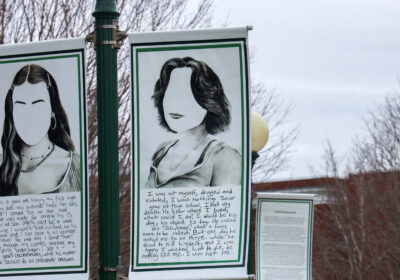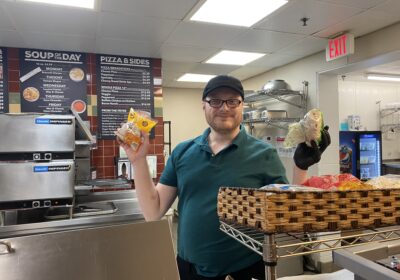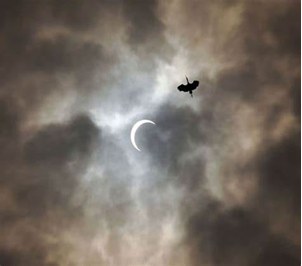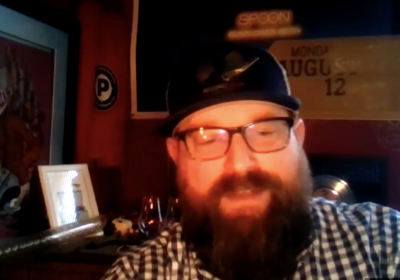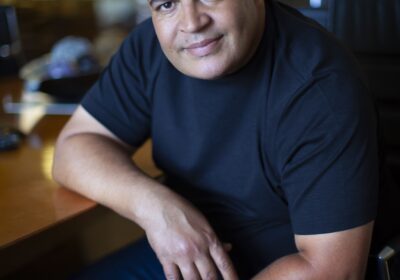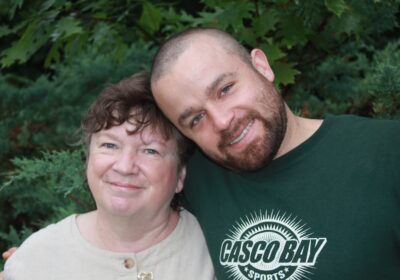No poets for gun violence event
What was supposed to be a Poetry Slam about gun violence in the Informal Lounge this past Thursday, turned into a passionate conversation about what we can do to prevent future shootings.
Those who participated in the discussion were those working the event.
No students came to read a poem on the issue and organizers aren’t sure why.
“I really thought this topic would be wall to wall with people since yesterday multiple schools had walkouts and moments of silence,” said Amy Bremel, who organizes the frequent Poetry Slam events.
Instead of calling off the event however, Robert Wuagneux, a former communication professor at the university, played and sang a series of uplifting songs on his guitar before an unplanned discussion ensued.
The group included juniors Jeff Hazard and Natasha Teston, who both volunteered at the event, Bremel, Wuagneux and Wellness Center Director Martha Coulter.
The discussion started with thoughts of how schools and people in them can help make sure children do not feel left out and isolated, as is the case with many shooters.
“Human beings need to be connected to other human beings. We’re wired to be connected and we can’t really survive if we’re not,” Coulter said.
This prompted the question : How do we make sure this happens? Coulter said it’s a matter of teaching respect to children.
“I think you teach them to respect each other, to value each other, how to make people feel appreciated, how to encourage someone when they make a mistake instead of ragging on them,” she said. “Teach them that put-downs are unacceptable. It’s really simple stuff.”
Hazard believes how the school systems choose to teach children contributes to some students feeling left out and feeling a lack of kindness.
“I feel like the education system just pushes people through like cattle and they want to teach them the basic concepts of education, but we don’t teach kids about empathy or how to be kind to each other,” Hazard said.
Wuagneux said we could help children feel valued by helping them create a sense of who they are at home and at schools.
“We don’t do anything to cultivate a sense of self that you can do this, look at yourself, do the things that you need to do to improve,” Wuagneux said.
He said what he noticed when he taught at a high school was those who fit in were those who showed great talent and were praised for their talents. He believes that helped them find their security in the world but it does not help those who do not have outstanding talents. It creates a gap.
All these theories about how society can make sure children do not commit these shootings was different than most conversations about gun violence, which mostly consist of gun regulations or bans.
However, here there was hardly any conversation about guns at all.
“I think the media glorifies the shootings,” Hazard said.
The group agreed, even saying it was more than just the shootings themselves being glorified.
“It’s not even just the school shootings anymore, it’s the threats too,” Teston said.
Coulter said the media often avoids writing about certain social issues, but write at length about shootings.
“We have our newspapers who don’t write about suicides because they don’t want to have copycats, but they get a lot of media coverage about school shooters,” Coulter said.
But the discussion was not all negative. There also was talk of how great students of Stoneham Douglas High School in Parkland, Florida were doing.
“I think finally young people have gotten together and said this isn’t right,” Wuagneux said.
They talked about the successes of these students’ actions in getting legislation passed in Florida, which raised the age to purchase a gun. This was followed by the same policies enacted in all Walmart and Dick’s Sporting Goods stores nationwide.
But here at Castleton, there has been very little involvement in the activism that has followed the shooting in Parkland.
“Nothing was planned here,” Bremel said. “I’m surprised that none of our students are gathering and expressing voices through either a poetry slam or in other ways. Organizing the 17 minutes or organizing a trip to DC [for the March for Our Lives], maybe they are, but it is not well known.”
The March For Our Lives is a protest against gun violence happening on March 24 in Washington DC and there are sister protests across the country as well.
“There’s also a huge March for Our Lives being planned by Rutland High students and we haven’t heard any interest from Castleton students,” Coulter said.
Bremel and Coulter were shocked by this because they know students have opinions on the issue.
As for the no-show at the poetry slam event, Hazard had a theory
“My friends didn’t want to come because it is too controversial,” he said, suggesting others might have felt the same.
Everyone in the discussion agreed that was a strong possibility, but also agreed it’s a shame students didn’t want to talk.
“That means our campus is not a safe community because other campuses, other communities are addressing it. So, what is unique about our place where we’re not feeling safe enough to express ourselves?” Coulter said.
Teston speculated it was because students are afraid to be shut down if they speak up.
“People are afraid to speak out because they have different views and if they were to say anything that was against anyone else, they would feel attacked,” she said.
Bremel believes conversations that spark discomfort are important to the growth of the students here and everywhere.
“If people are so concerned that they can’t express (their opinions) then we’re missing out on a huge opportunity for people here to grow and to learn and see the other side,” Bremel said.
What Bremel had hoped was many students would come to the poetry slam and voice how they feel about gun violence because in the past, they have been well attended.
“We’ve never had nobody come,” Bremel said. “We don’t shy away from topics…We do always have controversial topics. We’ve done rape, we’ve covered body image, we’ve covered politics in the elections, we’ve covered pornography, we’ve covered suicide, grief, feminism, LBTQ, bullying. So I mean all of our topics are big…so I’m surprised no one came.”

